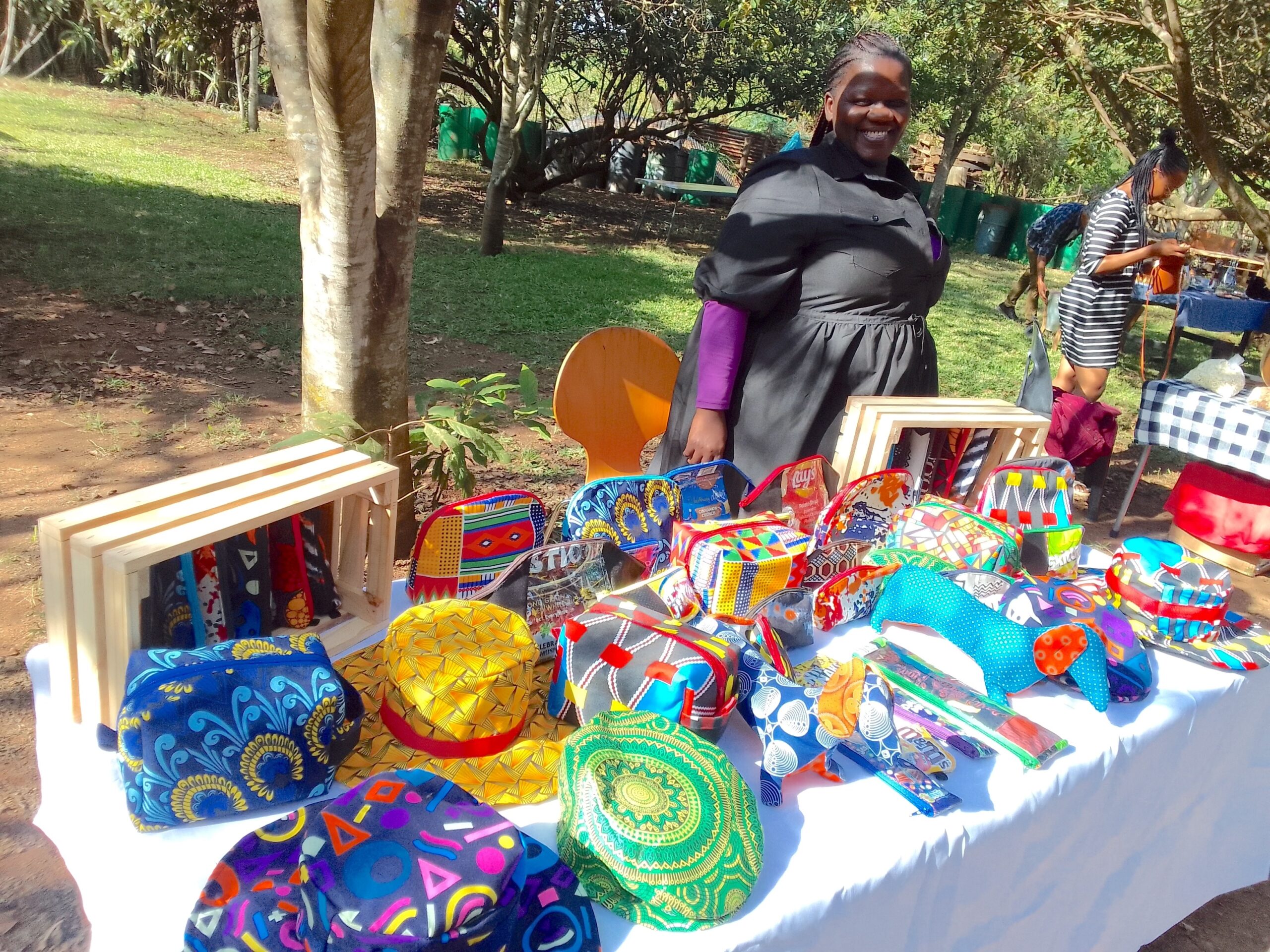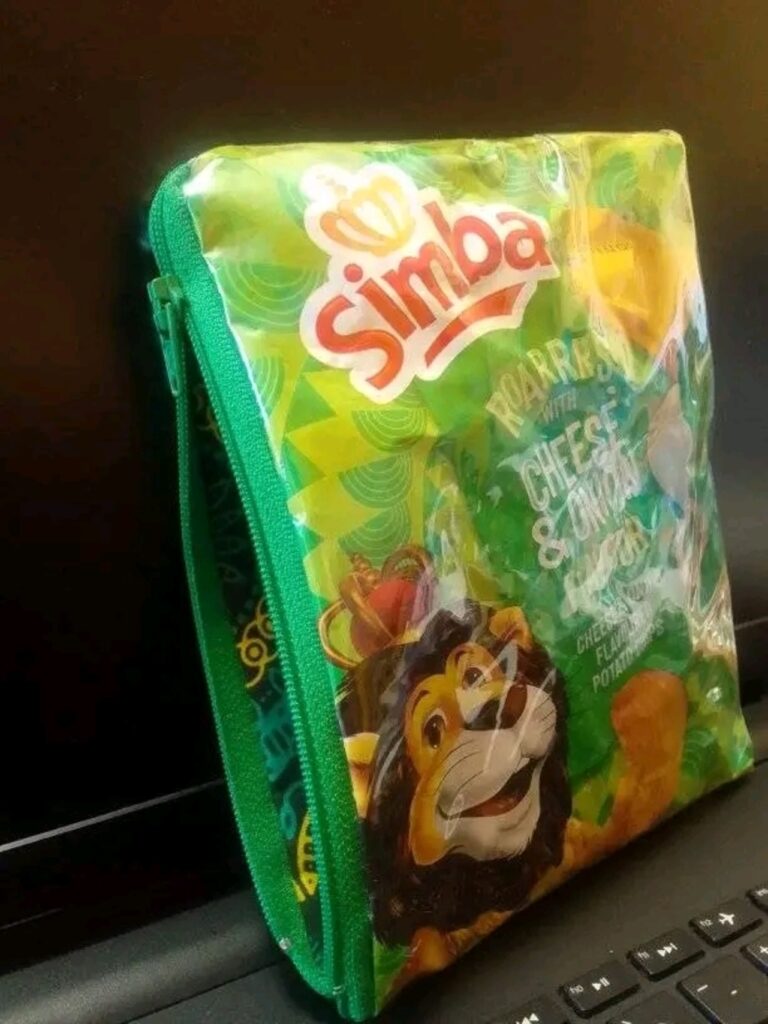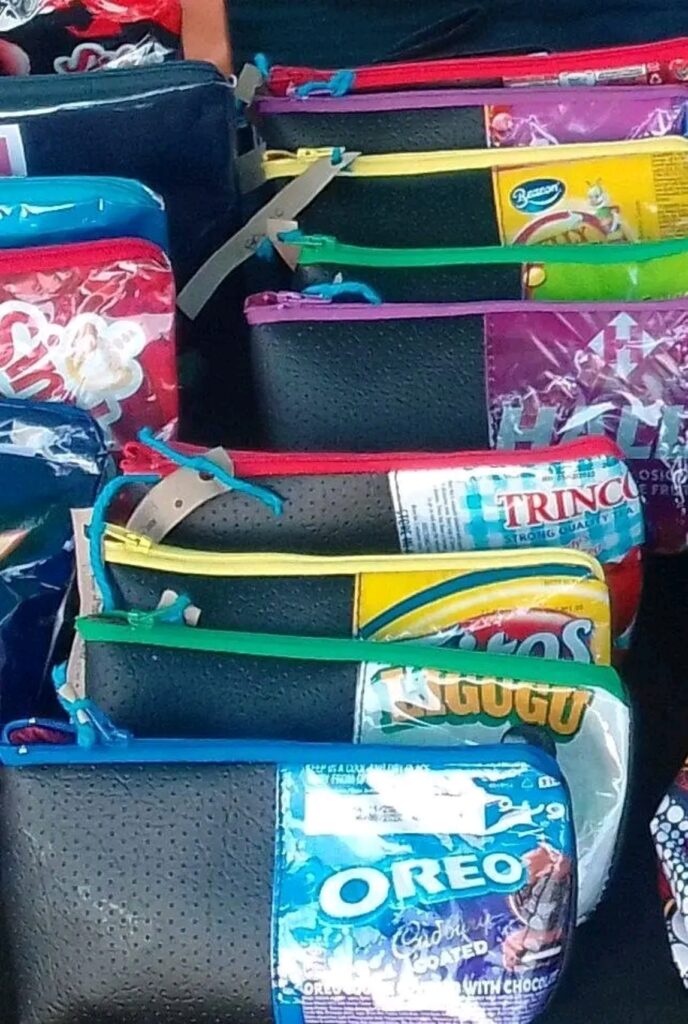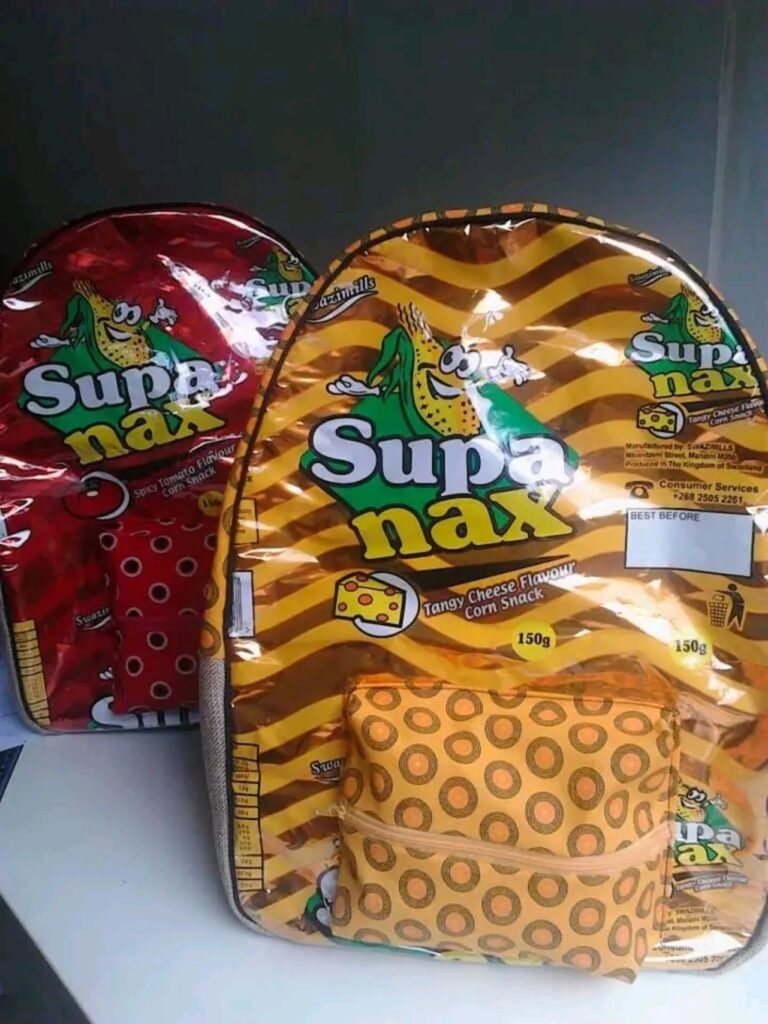Walking the streets of her town and picking up plastic trash gives Lungile Beuta the materials she needs to create bags, backpacks, and more.
With recycling facilities scarce in many regions, entrepreneurs around the world make use of what’s otherwise considered garbage to create beautiful items — and provide meaningful work for those often left out. Our series, Plastic ReMade, shares stories of those giving new purpose to plastic.
Each morning, Lungile Beuta takes a walk, searching Mbabane’s streets and alleys for plastic trash. In some homes, residents fill bags with plastic garbage, which they then deliver to Beuta. Outside the city, a group of rural women are doing the same.
It’s all raw material for Beuta’s business, Bantwana Craft, which turns this trash into colorful accessories.
The idea for Bantwana Craft was born ten years ago, when Beuta was a kindergarten teacher at a local preschool in the small kingdom of Eswatini. During recess, she would take long walks with her young students along the same roads she walked with her mother when she was a child. While walking, Beuta and the children would pick up trash while Beuta talked to the children about the importance of cleaning up their environment.
When kindergarten graduation drew near, the school administration lacked the budget to buy materials for making gifts for its pupils.
Aware of how much garbage littered the streets, Beuta realized she had what she needed to create gifts right under her feet. A Fashion Design and Technology graduate from Witwatersrand Technikon (now the University of Johannesburg), Beuta remembered weaving baskets with her mother when she was young. She came up with the idea of using plastic trash to construct backpacks the school could give to the graduating children.
Parents and students loved the backpacks and encouraged Beuta to start a company, and in 2017, she did.
Once Beuta finds or receives enough trash, she and her assistant wash, rinse, sanitize, and dry it. Then they transport it to their workshop, where they use patterns to cut it into specific shapes which they then sew into backpacks, coin purses, pencil cases, makeup bags, hats, toiletry bags, and more. They do a final quality check on every product before it leaves the workshop.
“When all quality requirements have been completed, packing for sales and the delivery of placed orders begins,” Beuta explains.

In the six years since it was created, Bantwana Craft has converted more than 2,000 pounds of plastic waste into reusable products — approximately 50 items each month. Beuta is working to secure international orders, which, she says, would allow her to hire more women at living wages. Every month, Bantwana Craft makes a profit of between E5k and E9k (roughly US$250 – $450).
Beuta recognizes that her business is just one small part of tackling a larger problem. “It’s a huge task and no one can do it alone,” she says. “We all must pull our weight …”





